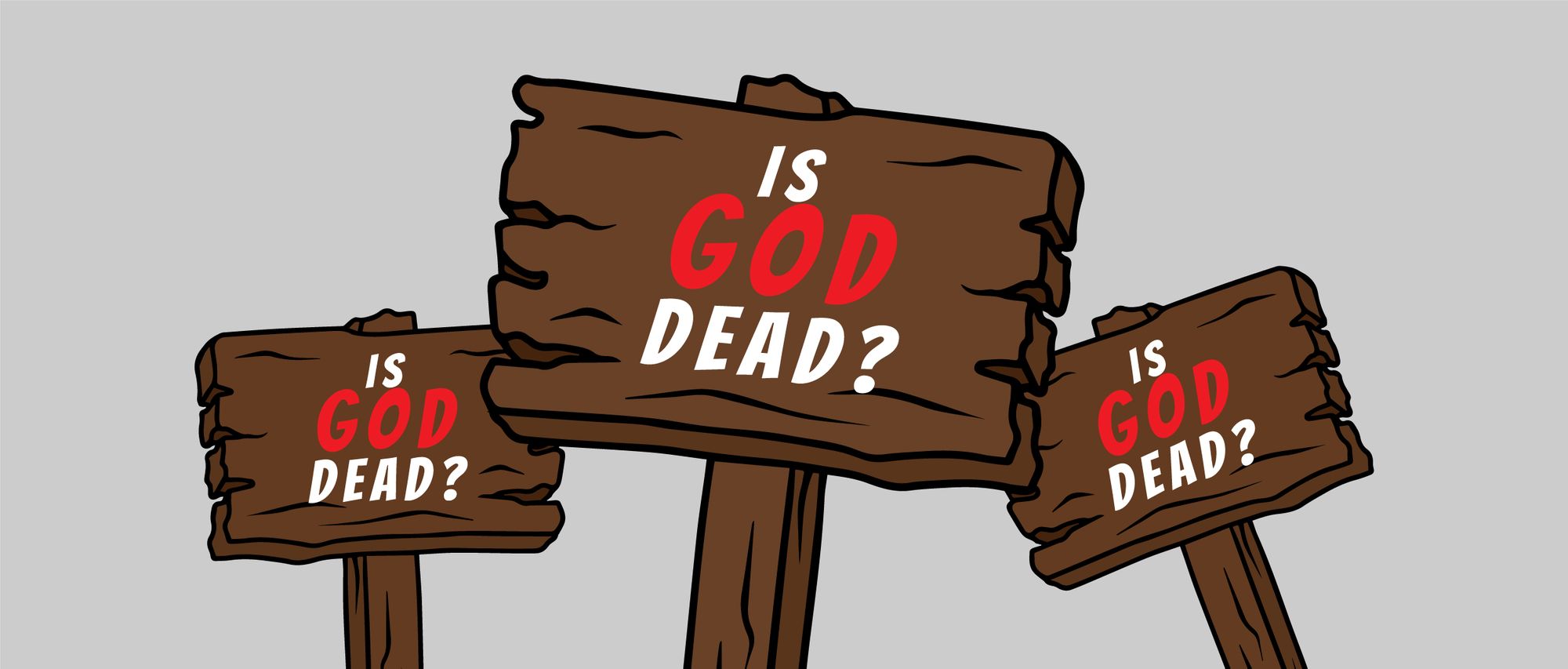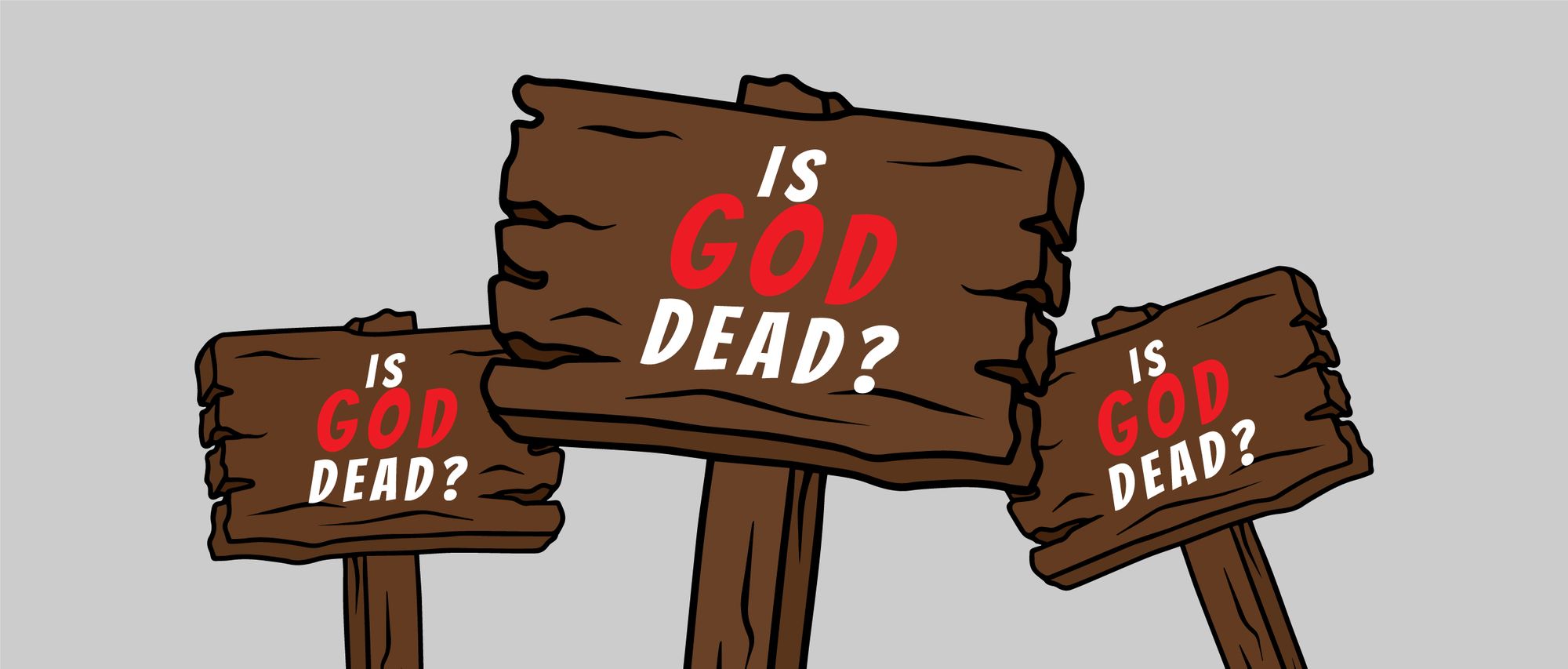Sounds Like a Savings Account

Is God Dead — The Question Isn't Black or White... It's an Ideal...
Sophia’s hands were always full. From the earliest light of dawn, her small bakery in the heart of an old town was a symphony of sounds and scents. Flour dust danced in the air like morning mist, and the ovens' warmth was a cozy heartbeat at the center of her world. Alexander, the painter who lived above the shop, often joked that Sophia’s bread was proof enough that the divine touched the world, for only heaven could inspire such flavors.
I have held many things in my hands, and I have lost them all; but whatever I have placed in God's hands, that I still possess.
— Martin Luther (1483-1546)
This quote, penned centuries ago, was the foundation of Sophia’s philosophy. She had known the sting of loss more often than she cared to admit. Ingredients spoiled, ovens malfunctioned, storms ruined crucial deliveries. Yet, her resilient spirit, her "bread" in God's hands, remained untainted by these misfortunes.
One particular morning, the sun rose to an unusual sight: Sophia had crafted a display of pastries that mimicked the wooden signs from the famous photograph that her friend Alexander had once shown her, the one that boldly asked, “IS GOD DEAD?” Customers chuckled as they saw the playful nod, biting into croissants that dared to ask the question of the age. Even the stern-faced Mrs. Alderwood had to suppress a smile, crumbs dusting her usual frown.
Alexander, entranced by the signs, decided they would be his next subject. But rather than capture their somber tones, he infused them with a whimsy that matched the bakery's spirit. His paintings showed signs sprouting with life, with birds nesting atop the question marks, as if to say, life — and God with it — could never truly be lost, merely transformed.
Sophia, wiping her hands on her apron, watched the people come and go, debating the question on the signs, the display, the pastries. It was all so serious, so grave, but her pastries offered a lighter view, a gentle reminder not to take the question — or life — too gravely.
The debate over the divine's mortality was an ongoing affair at the bakery. Regulars would discuss heatedly, fueled by caffeine and sugar, while Sophia and Alexander would exchange amused glances. It was their daily entertainment, a debate that, much like their friendship, seemed to have no beginning and no end.
The question of whether or not God is dead is not black or white, it's an ideal.
— Dr. Cory Elliot
When Alexander revealed his new painting, it became an instant sensation, a colorful testament to the quote from Dr. Cory Elliot that Sophia had recited, finding it in an old book she used to press flowers. The townspeople were baffled, their black and white notions challenged by the vibrant hues of possibility. Could God, like art, be an ideal — something personal and subjective, alive in ways they hadn’t considered?
The painting hung in the bakery, and debates raged on beneath it, as lighthearted as they were profound. Some said the divine was as dead as the ancient grains that Sophia used; others argued that it lived in the laughter that filled the room, in the community that shared in the bread and the art. Alexander would often quip that God was in the details, and Sophia would add, with a twinkle in her eye, "And in the Devil's food cake, apparently."
Sophia's bakery, with Alexander's art, became a place not just of nourishment but of communion. A place where the divine, whether dead or alive, was a daily guest, sitting at every table, partaking in every jest, and residing in every heart that chose to keep the doors open to wonder, laughter, and a good slice of bread.

The bakery, under Sophia's watch, was not just a bakery but a sanctuary where ideas and pastries were equally baked to perfection. Her hands, which had once known the ache of loss, now knew the warmth of fresh bread and the strength of conviction. The mural of laughter and life that Alexander painted was a testament to the fact that divinity, or its absence, lay in the eyes of the beholder.
Woman was God's second mistake.
— Friedrich Nietzsche (1844-1900)
Sophia laughed the first time she read Nietzsche’s provocative words, scrawled in Alexander’s slanted handwriting on the margin of a sketch he had discarded. Her laughter was not of derision but of irony. In a world that often underestimated the hands that kneaded the dough, she found a peculiar strength, a divine comedy of sorts. If woman was a mistake, then her every bread was a delicious sin, her every cake a mischievous rebellion, proving that some errors have a taste worth cherishing. Nietzsche’s quote adorned a special corner of the bakery now, etched whimsically onto a plaque, inviting not scorn but reflection, not indignation but a shared joke over morning coffee.
Alexander, on the other hand, had grown somber as he read more about the times that shaped Nietzsche and others. He read about the struggles, the fights for ideals, and the dark periods where humanity seemed to lose its way.
Those who want to live, let them fight, and those who do not want to fight in this world of eternal struggle do not deserve to live.
— Adolf Hitler (1889-1945)
The gravity of Hitler's words was not lost on him, nor were they sentiments he shared. But they sparked a series of paintings, a visceral response that depicted the absurdity of such darkness. He painted with a fervor, his canvas a battleground, and his brushes his weapons. The images were stark, yes, but bordered with the ludicrous, the strokes mocking the very notion that life was only for the combative, the contentious.
Sophia and Alexander took to staging mock battles, dramatizing the struggle of life with a flourish. Customers would walk in to find Sophia wielding a rolling pin like a sword, Alexander defending with a painter’s palette, their laughter echoing off the walls, turning the somber quote into a pantomime. They fought not for survival but for joy, not for conquest but for the sheer delight of living fully.
The bakery became a realm where mistakes were celebrated, where the fight was not to overpower but to overcome one’s own limits, to laugh in the face of absurdity. People entered with the weight of the world and left with a lighter step, nourished by more than just the food.
It was in this dance between the serious and the ludicrous, between history's shadows and the light of the present, that Sophia and Alexander found their true calling. They were not just purveyors of sustenance but keepers of joy, defenders of a space where the heart could feast, and the spirit could soar on the wings of humor and humanity. And in that small bakery, under the watchful eyes of philosophers and a painter, the divine — mistake or not — lived on, laughing.

The planksip Writers' Cooperative is proud to sponsor an exciting article rewriting competition where you can win part of over $750,000 in available prize money.
Figures of Speech Collection Personified
Our editorial instructions for your contest submission are simple: incorporate the quotes and imagery from the above article into your submission.
What emerges is entirely up to you!
Winners receive $500 per winning entry multiplied by the article's featured quotes. Our largest prize is $8,000 for rewriting the following article;

At planksip, we believe in changing the way people engage—at least, that's the Idea (ἰδέα). By becoming a member of our thought-provoking community, you'll have the chance to win incredible prizes and access our extensive network of media outlets, which will amplify your voice as a thought leader. Your membership truly matters!


